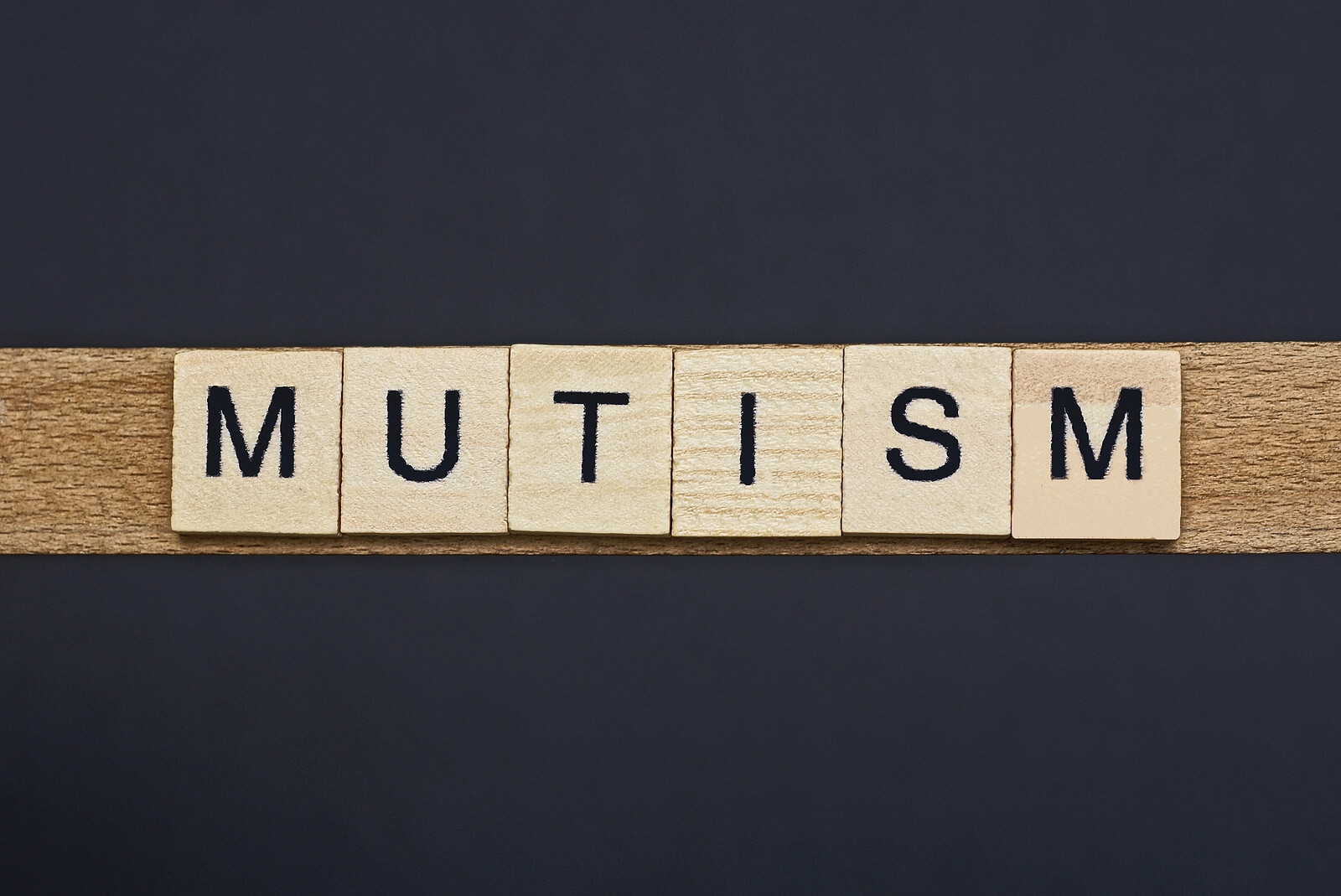If you’re reading this then the probability is your child has received a diagnosis of selective mutism. You might be experiencing a multitude of feelings ranging from sadness and worry to frustration and even anger. There might be waves of grief as you think about the dreams you had for your child; making friends at preschool, going on play-dates, laughing, and having fun at birthday parties, to name a few. However, when at these events, instead of giggling and playing games, all you hear is the silence of unspoken words.
These feelings might be overwhelming, but my role as a child therapist specializing in selective mutism is to make the treatment process as seamless as possible for you and your child. I want to help you worry less so that you can spend more time engaging with your child. We will all work together, on this journey, to help your child find their brave voice and overcome the challenges that come with selective mutism.
I am here to instill hope
Hope that as treatment progresses, you develop feelings of joy as you begin to see the growth in your child. The silence that was once there turns to whispers. This progresses to speaking, giggling, and laughter as your child engages with friends while their confidence grows and their anxiety decreases.
I am trained in the research-documented treatment approach called Parent-Child Interaction Therapy adapted for Selective Mutism (PCIT-SM). This adaptation was developed by Dr. Steven Kurtz, a pioneer in assessing and treating selective mutism since 2002. This approach has proven to help children and their families overcome selective mutism. It can be implemented by therapists, teachers, and parents who are involved in the child’s life.
I will briefly explain what Parent-Child Interaction Therapy (PCIT) is and describe the nuances of how it has been adapted to help children overcome selective mutism.
What Is PCIT?
Parent-Child Interaction Therapy (PCIT) is an evidence-based treatment developed by Sheila Eyberg, for young children with behavior problems. It is a short-term treatment approach designed to help children learn to manage their frustrations. With PCIT the goal is to strengthen the relationship between the parent/caregiver and child so they can guide and direct their child’s behavior. The focus is on setting limits, implementing calm discipline, and restoring positive feelings to these interactions.
The Two Phases of PCIT
The first phase, Child Directed Interaction (CDI) focuses on establishing warmth in the relationship between you and your child. It does this by helping you learn and implement skills to make your child feel secure and calm in the relationship with you.
The second phase, Parent Directed Interaction (PDI) will help you cope with challenging behaviors your child might display. You will learn to remain calm, confident, and consistent in your approach to discipline. The strategies you learn will help your child accept the limits you have set, comply with your directions, and behave appropriately when out in public.
What is PCIT-SM?
Dr. Steven Kurtz and his clinical and research team worked to develop Parent-Child Interaction Therapy Adapted for Selective Mutism (PCIT-SM). PCIT-SM was constructed with the belief that mental health experts understand the science of, and power behind, relationship building. Building relationships is an important part of PCIT-SM. Relationships between you and your child, between the therapist and your child, and between all involved in treatment are necessary. Once your child has that positive, trusting relationship they are more likely to engage in treatment, which includes “brave talking” exposures.
PCIT-SM creates a fun, trusting relationship that utilizes graduated steps to help children increase brave talking. Strategies involved in PCIT-SM include:
- Systematically increasing difficulty
- Decreasing avoidance and enabling
- Increasing distress tolerance for child and parent(s).
Similarly to PCIT, PCIT-SM has a two-phase approach; Child Directed Interaction (CDI) and Verbal Directed Interaction (VDI).
Child Directed Interaction (CDI) Skills
CDI skills are used during warm-up periods with children when they aren’t ready to respond to questions. By having this warm-up period, we are working towards helping your child feel less anxious and be more successful in a new environment with new people. CDI skills can be used with children at any time, not just during the warm-up period of PCIT-SM.

CDI Guidelines
During CDI, we want to:
- Follow the child’s lead in play.
- Avoid asking them questions, giving commands, or making negative comments.
- Describe nonverbal communication, but avoid interpreting its meaning (e.g. “I see you pointing,” as opposed to “I see you’re pointing to the crackers.”)
- Engage and enjoy your time with the child.
PRIDE Skills
An easy way to remember the CDI Skills is by the acronym PRIDE. Implement these skills for a successful, and enjoyable, CDI session with your child.

Verbal Directed Interaction (VDI) Skills
VDI skills are implemented when the therapist feels the child is ready to be prompted to talk. These prompts utilize “exposures” to help the child begin talking to other adults and children, and are used to increase speech by asking certain types of questions. We use a flexible sequence of prompts to support your child’s success in responding.

VDI Guidelines
During VDI we want to:
- Always wait 5-7 seconds for the child to answer after asking a question.
- Use a reflection + a labeled praise to reinforce ALL verbal responses.
- Describe nonverbal communication, but avoid interpreting its meaning (e.g. “I see you pointing,” as opposed to “I see you’re pointing to the crackers.”)
- Repeat the same question up to 3 times.
- Return to the last situation the child was successful in if they struggle to respond verbally.
- Revisit unanswered questions.
- Reflect the child’s speech in a regular voice (modeling a brave voice) even if they responded in a whisper. Especially important when in a group setting.
- Continue to utilize CDI skills in between questions.
Your Role as the Parent
When treating selective mutism with PCIT-SM it is important to understand, and know, the techniques that your therapist will be implementing in a therapy session. Dr. Kurtz not only developed the protocols for PCIT-SM, but also set up the SM Learning University. This is a free web course designed by Dr. Kurtz’s Selective Mutism team. The web course helps parents (among others) to learn the skills that can help children overcome selective mutism.
Selective Mutism Learning University | Kurtz Psychology
Upon completion of the course, you will have a greater understanding of the strategies that your therapist will be implementing with your child. You will also be able to take the strategies and utilize them when you are out with your child doing real life exposures.
There Is Hope For Overcoming Selective Mutism
The strategies utilized in PCIT-SM are designed to help your child gain self-confidence and allow them opportunities to speak bravely. Your child should always be allowed time to warm up and know that although the expectation is for them to speak, no one will force them to. Overcoming selective mutism is a journey. It takes time.
Start Working With a Child Therapist in Scotch Plains, NJ
If you are concerned that your child might be struggling with selective mutism, reach out for a free twenty-minute consultation. Our team of caring therapists is here to offer support for you and your child. We are happy to offer support from our Scotch Plains, NJ-based location and across the state. Start your therapy journey by following these simple steps:
- Contact us for a free phone consultation.
- Meet with a caring therapist
- Start overcoming selective mutism with your child!
Other Services Offered by Brave Minds Psychological Services
Brave Minds Psychological Services helps children, teens, and families overcome severe anxiety, stress, and painful experiences. We specialize in developing brave-minded youth who can move forward despite fears and significant challenges. But, child counseling isn’t the only service we offer. We also offer anxiety treatment for children and child sexual abuse therapy. Additionally, we have therapists who specialize in offering therapy for teens, including counseling for teens with anxiety and social phobia treatment for teens.
Additionally, we offer a wide range of mental health services for adults including anxiety treatment, couples therapy/marriage counseling, counseling for postpartum depression, OCD treatment, bereavement counseling, and food allergy therapy. We also have specialized trauma therapy and PTSD treatment. This includes counseling for birth trauma, pregnancy loss and miscarriage, equestrian trauma, and sexual assault counseling for adults.



